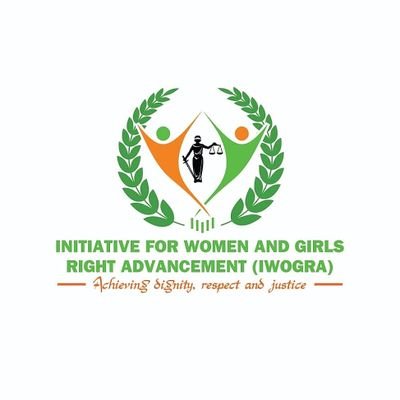Initiative for Women and Girls Right Advancement (IWOGRA) held a training workshop at Etsu Jikwoyi Palace, Jikwoyi Community, Abuja on Saturday, 12 September, 2020. The training had 37 Participants in attendance comprising of women and girls, and the IWOGRA team which comprised of Nkechi Obiagboso-Udegbunam, Executive Director of IWOGRA, Sheila Audu, Deputy Director of IWOGRA and Omosigho Uwaila, Program Manager. The Training started at 10:00am with the introduction of the Participants and the IWOGRA team which was done by Sheila Audu in order to enable the Participants and the IWOGRA team get acquainted with one another.
Thereafter, Nkechi Obiagboso-Udegbunam, Executive Director of IWOGRA gave the opening remarks. In her remarks, she highlighted the uniqueness of women and girls and the need for them to become catalysts that will speed up positive changes in the society as they are an integral part of the society because “NO WOMAN, NO NATION”. She implored the participants to unite and join in the efforts to curb sexual and gender-based violence and the injustice that women and girls encounter especially in excluded communities.
According to Omosigho Uwaila, Program Manager, the objectives of the training are: Educating grassroots women and girls in Jikwoyi Community on the provisions of the Violence Against Persons (Prohibition) Act, 2015, to train the Community women and girls on strategies for eradicating and preventing sexual and gender-based violence and to provide free legal counseling to survivors of sexual and gender-based violence.
The Violence Against Persons (Prohibition) (VAPP) Act was simplified by IWOGRA to enable grassroots women and girls understand the content of the Act. Copies of the Simplified Version of the VAPP Act were distributed amongst participants prior to the commencement of the training.
Nkechi Obiagboso-Udegbunam, Executive Director of IWOGRA extensively trained the participants on the provisions of the VAPP Act, 2015. The training was highly interactive and engaging as she simplified and taught them all the sections of the VAPP Act. Participants shared real-life experiences and were in turn taught how to get help when needed. She went on to urge women to stop pulling each other down but rather reflect on issues affecting women and girls and cooperate to resolve them. In addition, Sheila Audu, Deputy Director of IWOGRA urged the women and girls to always speak up against all forms of violence and that the VAPP Act is there to punish offenders and give justice to survivors/victims of SGBV.
After the Presentation, participants were divided into two groups and were asked to identify the various forms of SGBV prevalent in their community and proffer ways to address them. The participants reconvened after the group work and presented their answers which reflected that rape, domestic violence, child abuse, forced isolation, deprivation of women’s rights, and verbal and psychological abuse are the common kinds of violence they experience. They urged the government to create more agencies to curb violence and appeal for more enlightenment programs so community people will be well informed.
IWOGRA selected 6 persons amongst the participants to form the Sexual and Gender-Based Violence Community Response Team and committed to train the Response Team on how to receive complaints from the community women and girls, document evidence, write reports and report to relevant agencies for further actions in order to combat and curb violence against women and girls in the community.
His Royal Highness, Bawa Jetta of Jikwoyi Community who had recently received an award from the National Orientation Agency (NOA) for being the most cooperative traditional ruler gave the closing remarks by commending the IWOGRA team for their efforts to help combat SGBV in the community by training the women and girls on the VAPP Act. He encouraged the women and girls to put into practice what they were being taught and urged them to apply it in their daily lives. He went further to explain that SGBV such as Rape is prohibited by culture and explained that offenders (usually men) were disgraced publicly by stripping them naked and parading them around the community with a heavy stone on their neck in order to discourage others from indulging in the act. He emphasized on the need for CONSENT and encouraged women not to look down on themselves but aspire to be great.
